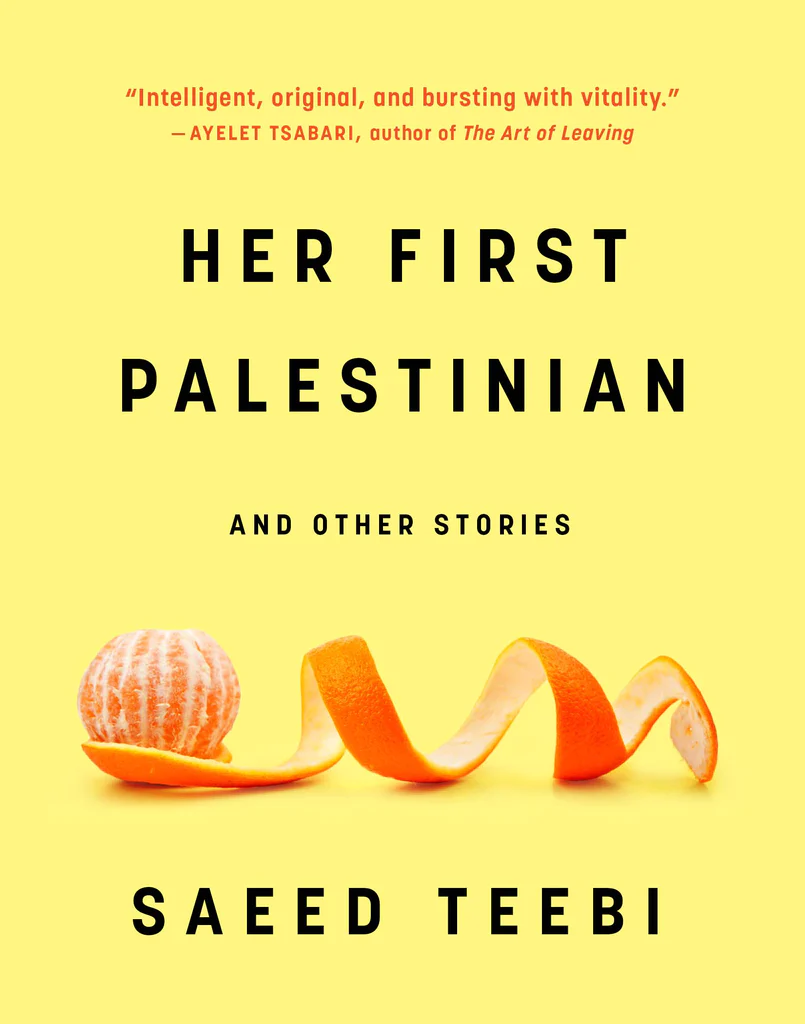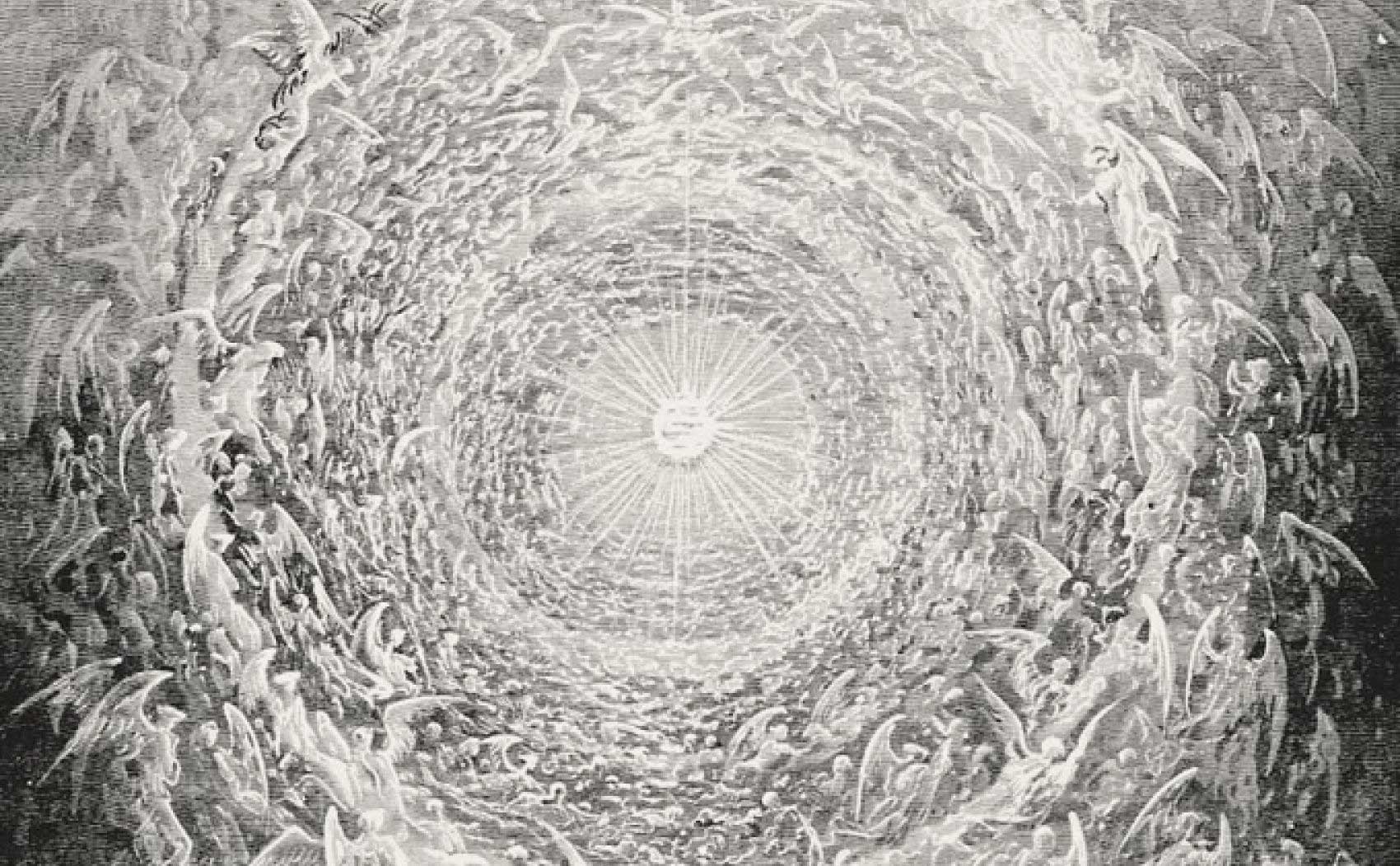
The Kindergarten Teacher, Nadav Lapid
Nira, a middle class Kindergarten teacher, seems banal at first, kissing each student every morning as they enter the classroom to stroking and caressing children during naptime, a practice we aren’t accustomed to in North America. As she discovers that she has a child prodigy amidst her class, she starts an active interest in fostering his talents. Or this is what she tells his estranged poet uncle and disinterested single father. Five year old Yoav, seems to go into a trance while pacing, composing poems about unrequited love and matadors. Yoav’s nanny jots down the poems as Yoav blurts them out. Nira begins to do the same, bringing his poems to her poetry club where she hasn’t shined as of yet. By the positive reception of the club, she continues to pass Yoav’s poems as her own, just like Yoav’s nanny uses them as her own for acting auditions.
This film is wonderfully disturbing, keeping Nira’s creepy interest in check. She tells Yoav it is alright for a student to call the teacher at home when he has a new poem. The boundaries are murky as are her intentions. She isn’t depicted as a pedophile as she washes the sand from the sandbox off his body at the school’s shower area. She decides to remove obstacles to access Yoav’s poems. She takes him to the beach where she recites Bialik (which Yoav recognizes) and teaches him the difference of Sephardi and Ashkenazi sunbathers after introducing him to an Israeli poet describing Sephardic black skin. At worst, she is a megalomaniac comparing herself to a famous mentor, referencing the throwing of candies to a young Mozart, or at best, trying to philosophically preserve this blossoming poet from a mundane world which doesn’t appreciate art. She takes him to a poetry reading reserved for her by her poetry club leader, where audience members’ reactions are mixed. “Aren’t you ashamed of exploiting this child?” and the veritable candies are thrown onto the stage. Then, she meets up with the artsy fartsy crowd to lose herself in wild dance. The exegesis is complete since Yoav’s first poem about Hagar ends with a line religious in nature. The scene where in she teaches religious history through patriotic song about warrior hero Maccabeus, crowning Yoav as the rebel, has to mean something.
Truly original and never treading on sentimentality, this film weaves narrative and aesthetics to challenge viewers on the characters’ motivations, even Yoav is enigmatic. Yoav is at first stoic and disaffected by teacher’s initial grooming and he tortures her when her questions about the poems’ meanings go unanswered. “Who is Hagar?,” she asks about his first poem. He doesn’t comply. She consoles herself with creating Yoav a persona; “That is right. Poets never obey.” He says he misses her when his father decides to sever the relationship. His restaurateur father regards relationships as mercantile when he finds women are stealing from him like his ex-wife, who ran off with her lover. He wants his son to be normal, not lofty like his poet brother; in the eyes of a materialistic pretentious restaurateur, poetry is for losers. Yoav’s best friend Asil, is an anti-intellectual type, a mini-soccer hooligan who chants stadium chants against the opposing Maccabi team. “Maccabis are Nazis, whores, yellow in flames, ghettos, fire burning.” We find out the Asil’s father is a professional goalkeeper by Yoav, who is sensitive enough to give up his turn to his friend because the father is taking a beating in the papers.
As a mother, Nira neglects her older children. One son decides a career in the army, she and her husband concur, “A career in the army is for morons and the poor.” On the marital front, she interrupts sex with her engineer husband to answer Yoav’s call. She desperately clings to Yoav as a surrogate to her ho-hum life. A challenging film; not for passive viewers.
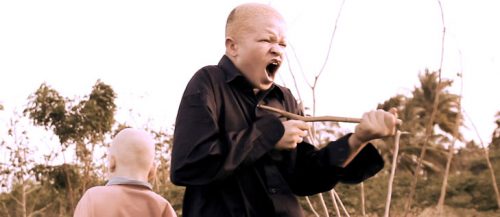
White Shadow, Noaz Deshe
Alias, an albino in Tanzania, witnesses the gruesome murder of his albino father macheted to death by a gang (on behalf of the village witchdoctor) because it is believed their heart and limbs hold magical powers , where the witchdoctor can charge exorbitant rates for albino parts spells. Alias and his mother bury him secretly with chicken blood and rubbing his ashes onto the house as ritual demands since the “dead treat us” accordingly. Already disrespectfully burying him at night infringed taboos. His mother sends Alias to the city with her brother, who will bring him to an albino safe house, but the uncle exploits Alias to sell trinkets on the streets along with his daughter, Antoinette.
The witchdoctor is chastised for the murder of Alias’ father by the village showman-like pastor, who goes around in a red tuxedo, to chase the devils out of him in the name of Jesus. But clients keep asking the witchdoctor for spells to solve their quandaries. The witchdoctor’s other hat in the city is a gang leader and loan shark, who violently beat up Alias’ uncle for a debt.
Life for an albino in Africa is difficult. A fellow truck driver kids Alias’ uncle about the Swede is innocent enough while rival peddlers call him pigskin for selling on their turf. Walking through a seedy part of the city, people remove Alias’ black kerchief under his cap, start rubbing his hair, “It is in his hair.” He befriends a young albino friend, Salum, at the safe house where they play imaginative hi-jinks with imaginary guns and converse about life with the young Salum, who fancies himself a witchdoctor and romance expert. Salum is introduced in the narration in a non-linear way which compares this innocent’s advice about “plucking one’s eyes if she’s not in love” or “take her out for good food” or “go to a witchdoctor for wealth” to the more sinister adult variety. Alias hates villages seeing what was done to his father. He begins a crush on his little cousin who rejects him at a schoolyard game where segregated boys and girls kiss separated by a flag with Obama’s face; a bi-racial person. When she finds out it is Alias, she spits and tells him to “go back where you belong.” They make up later in an endearing scene on the computer dumping ground with pretend cellphones.
The camera takes shots of city life and the swivelling camera of the African skies. The Muslim man wanted a Christian funeral claims the dead man’s niece who scouts the town for cryers paying 500 shillings for participating. The Christian funeral coffin industry shown in sequences of rows upon rows of fancy coffins and crucifixes, taking stock of superstitions and beliefs without judgment for the eye behind the camera is non-African. The filmmaker is Israeli -German and the production team is Italian (Fiat family, Italian model and Ryan Gosling as well).
The safe house is where albino children find others physically like them, enjoying childhood instead of living in fear for their lives. That is until the manhunt ensues from night vision scenes of Alias covering his torso in mud and in water away from the glares of flashlights that puncture the dark.
The interplay of black and white palette is seen throughout the film: shadows and hyper-white lighting at the film’s opening scenes, a black centipede, playful caresses between Alias and his cousin’s black skin and black smoke (the CGI white smoke in the long shot unnecessarily pedantic).
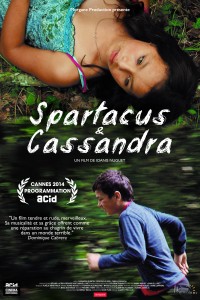
Spartacus & Cassandra, Ioanis Nuguet
The young actors in this poetic, gritty docudrama play themselves but we do not know if the situation and actors playing their parents are fictionalized. Spartacus and Cassandra are two Romanian Roma siblings living in France under a circus’ big top, as a social experiment with their 21 year old trapeze artist/ social worker, Camille. Their parents are deemed unsuitable by the courts. The children are torn between family and Camille’s assimilated French lifestyle, but firmly rejecting the idea of foster care. Their father was kicked out of the big top community amidst the urban Roma encampment for being a drunk and beating his mentally ill wife, who is laughed at in all the camps for laughing and suddenly crying Spartacus tells us. “She’s not crazy. She has a sensitive heart”. The children help by picking lily of the valleys for their mother to sell on the street. Cassandra seems to love school, her French friends and her living arrangement while Spartacus fails at school, feels guilty of separating the family unit, and believes that his father has found work in Spain, wants to leave with him. Father downplays education since most Roma don’t complete schooling. When Camille confronts him, “What will the children do in Spain, beg? You’ll pick up Spanish like that, find a job like that, the government will give you free housing?” Father tells judge at one hearing, that in their six years in France, no one helped them. “This girl gives me orders.” The kids reach their breaking point due to their parents’ instability, homelessness and mother’s incessant telephone calls begging them to take her with them because she can’t take the beatings and life on the street, interrupting their almost normal childhood. The father wants to take the children to Spain before their next court hearing which angers Cassandra, while Spartacus finally breaks down, “What did I do to deserve parents like you?” In spite of everything, Spartacus retains his Roma identity with his dancing and his situation central to his slam poetry. “At eight, I was stealing a car; at nine, we moved to France, at ten, a social worker intervened, foster care; at eleven spoke French and at thirteen forced to leave my parents.” Cassandra, too, expresses herself artistically by singing she wants a house, not a cage.
Spartacus’ Roma friend isn’t living any better with his family intact, the perks of a bedroom with cable comes to an end when the building is facing demolition. They get money from the Pentecostal church. Religions confound Spartacus, “How is it different from Orthodox? Do you drink wine?”
We see Camille defending the children from police clampdown on the Roma and she doesn’t let them out for school since the children have no identity papers. They look at Camille, Spartacus wonders after they take away their parents, “when you are gone, no one will take care of us.” Indeed, the siblings only have each other and Cassandra worries, “Brother is all that is left. Wonder if Camille will love us for rest of our lives?” Camille, almost gave up since she is too young to raise children but buys an old house in the country for the three of them. She discovers Spartacus wants to be a farmer but he fatalistically catches himself thinking “when I see my parents living in la merde, paradise disgusts me.” Cassandra worries about her homeless parents, living in a suburb of Paris, “they could die beaten up or killed by police”. The last phone call from her mother implores them to accept her in since she was abandoned by their father again; Cassandra decides to live without parents, “if only they can live without us”. Spartacus’ last slam promising he will go to college, to buy a house for them in Romania but not a mansion: “Father ends up in prison for stealing food while homeless; maybe you’ll get sober there. I believed in your society, give up parents, what is the point of speaking French to be integrated, when you are poor, without money, steal. Until the cops and Ministers won’t be afraid of the Roma…”
This festival has a special place in my heart and unlike that other festival, it has always been open to diversity in staff and volunteers – generous with volunteers at that. It is where I met filmmakers and where a childhood dream came true. When Bono came to promote his screenplay in a Wim Wenders film, his bodyguard granted me way, unlike the hordes of undeserving fans because I called him out by his real name with a photograph of his house in Dalkey. I put my arm on his, telling him that I was in Propaganda fanclub in elementary school and solemnly added, “Don’t give up on Africa”. He was then whisked off into the black car, with the car window rolled down; “Take care now,” as he waved. Wim Wenders recognized me the day after I asked him to sign my VHS copy of Wings of Desire, called me over by my first name and handed me his buttered popcorn. Meeting Peter Greenaway and Todd Solondz were not as eventful the following year.
The past festivals were about showcasing new talents who became auteurs. Those discovered at Cannes to be on that year’s roster at the defunct Cinema Parallèle (replaced by Ex-Centris and Cinema du Parc). Under the new director of the FNC, the festival severed ties with Ex-Centris due to budgetary constraints this year. It feels like the festival is trying to grasp for a new identity while still culling best films shown at the big competitive festivals such as Cannes, Locarno, Venice and TIFF. That leaves smaller films which haven’t competed in these festivals to be scooped up if they aren’t scooped by the New York Film Festival.
The edginess is still there even though the new media was dropped from the official name in 2004. FNC FilmLab still supports experimental films. New collaborations with Fantasia Festival and Concordia University, one of the few places in town with real projectors, meant to bring in new clientele. Collaboration with Pop Montreal adds to hipster appeal of the festival’s tradition of presenting music docs, this year ones on Dominique A, New Model Army and Elliot Smith, Don’t Think I’ve Forgotten: Cambodia’s Lost Rock n’Roll, Bjork’s Biophilia; as well as docs on the film industry like The Gogo Boys: the Inside Story of Canon Films, Giuseppe Rossi Makes a Movie (metafilm about a Korine Harmony type) while Seth’s Dominion for comic nerds.
FNC’s identity has always been about marginalized issues and characters, some teetering beyond quirk. This year’s film themes include human rights and the sexual rights of those with disabilities: The Special Need about an autistic man’s quest for sex and Le droit de Baiser /The Right to Sex short about sex in Quebec’s CHSLD hospices; Israeli film, Next to Her about a sibling caretaker to her disabled sister; Corrections Class also deals with romance in Special Education between teens who happen to be differently abled; to aboriginal rights in Australia in Charlie’s Country, Nomadic rights such as Roma children in Spartacus & Cassandra and the codes of the Yeniche travelling community in France in Manges tes morts; or the right to exist in diversity such as Cape Verde’s immigrants in Lisbon in Horse Money, the 22 members of the Muslim minority in China imprisoned in Guantanamo in Uyghurs, Prisoners of the Absurd; albinos in Tanzania in White Shadows; the transgendered in Der Samurai and gay aesthetics in Xenia, which is a collaboration with Image & Nation Film Festival. The individual rights of child-brides, is explored in Difret, where a lawyer is to defend an Ethiopian teenager facing a death sentence, accused of killing her kidnapper when attempting to escape from a marriage against her will.
The political documentaries about environmental issues such as self-sufficiency, before homesteading became trendy, in The Creation of Meaning as well as independent natural winemakers facing hurdles from conventional multinational wine industry in Natural Resistance. Similarly, El Ardor is about small-scale farming facing land grabs in the South American selva. Capitalism’s pitfall is highlighted in documentaries such as Harold Crook’s The Price We Pay about offshore corporate tax evasion and in Indebito (Indebted), about the economic crisis in Greece with Italian singer, Vinicio Caposela along with the ride.
This year, the Louve d’Honneur award will be given to Shinya Tsukamoto to retrospectives on contemporary filmmakers like Iranian Mohammad Shirvani and Pedro Costa who will be giving a master class, to retrospectives of dead filmmakers such as Samuel Fuller, Frederic Back, Peter Wintonick to one film showcase for Lauren Bacall-Howard Hawk’s To Have and Have Not, Volker Schlondorff’s Baal, Jean-Claude Lauzon’s Un Zoo La Nuit and for the wolverines / petits loups clientele, Jumanji for Robin Williams.
One sees the tradition of second generation filmmakers showcased: from Asia Argento, Samantha Fuller, Mira Wintonick, Jules Falardeau (Pierre, no relation to Philippe Falardeau whose film opened the festival). When Pierre Veronneau said the relationship between Quebec film critics, funding agencies and directors was an incestuous one, I do not think he was talking about filial talents, the passing of the torch or what in other circles would call nepotism.
Of course, Quebecois filmmakers also featured, from rent-a-director in American outfits to truly independent films. One screening each for established directors like Wim Wenders, David Cronenberg, Marjane Satrapi and Amos Gitai, probably means they will be in for wide-release at local venues.

Charlie’s Country, Rolf De Heer
Warning: spoilers
David Gulpili, the aboriginal actor who is called upon by every Australian film about Aborginals, ever since his Walkabout debut, stars and wrote this screenplay about the daily struggles of aboriginals. Happy-go-lucky Charlie, who jokes with a white policeman, whom he calls white bastard, cashes his welfare cheque and shares it with people on the reservation, who live in bare containers. He steals cigarettes from locals to burn them in a bonfire, the source of civilization’s ills and his lung problems. He wants a proper house but white social worker says, “The government gave you a house”. Charlie says the container isn’t enough for his family, “You got a job and house on my land. Where is my house? Where’s my job or house?”
White doctor tells him to eat healthier and stay off the ganja but how can he when the only food on the reservation is junk food, which he can’t chew with dentures.
When aboriginals go hunting for buffalo, the policemen confiscate their food because they were hunting without hunting or gun licenses. He helps, or plays with, both white criminals looking for smuggling routes and policemen after them. Instead of rewarding him, the police confiscate his traditional spear to hunt because it is dangerous.
Charlie decides to retreat into the bush, the idea of the bush is the hallmark signifier of Australian cinema, to live like ancestors. He survives on fresh Barramundi fish, nuts from trees, foraging roots; his supermarket in the wild, using survival skills he learnt as a kid such as building shelter from rain. Viewers see Aborginal art in cave painting where the non-diegetic soundtrack emits voices, cars and streams. After falling ill with pneumonia, he is whisked to a hospital in Darwin, seeing his friend dying far away from their land from kidney disease. The doctor claims he can’t pronounce Charlie’s “foreign name” which prompts him to say, “Now, I am a foreigner?” He escapes where he meets a drunk aboriginal woman, who asks if he is banned from buying liquor under Australian law. He empties his bank account buying alcohol for a motley of homeless aboriginals at first since he has clean a record (white merchants scan for identity), soon after, he descends into alcoholism to the consternation of his tribal friends, who try to persuade him to return to the reservation. When he sees the same white policeman from his reservation, emptying the Darwin camp with racial insults, he attacks him, gets arrested. The policeman’s lets out, “Traitorous black, you betrayed me. Useless black. Don’t go soft on a black fellow, they’ll take advantage of you”. For breaking the law in buying “grog” to banned persons, he is sentenced to 8 months in prison. His hair gets shaved when admitted to prison, a life which entails of monotonous laundry tasks. Upon release, Charlie jokes with parole woman when she tells him he can’t associate with known drinkers, to which he replies, “Everyone in this country is a known drinker”. She retorts, “Known to police”. “Tell them not to associate with me”. He jokes he wants to live like a white man, “I got here by being an aboriginal”.
Cinematography renders the idea of the bush, the immobility of the reservations which subdues its inhabitants. The didactic monologues hammer the fact. The racist policies resulted in poisoning aboriginals, creating the same dependency (from welfare cheques to spend on alcoholism and junk food) which is ultimately criminalized with subjugating aboriginals to undergo identity scans to weed out banned drinkers. The film re-iterates the real costs of colonialism, a vicious circle we know much about in Canada. Throughout it all, even an erudite observer like Charlie, still treasures the institutions of colonialism: the photograph of a troupe of aboriginal dancers he danced with in his youth, in front of Queen Elizabeth at the opening of Sydney Opera House.
Cavalo Dinheiro, Horse Money, Pedro Costa
Warning: Spoilers

This oneiric, fantasy film takes place of in an asylum of the mind, in the state of limbo, fusing mental and immigrant asylums as one topos. Costa returns to film Cape Verde immigrants of Lisbon’s Fontainhas area with his non-professional cast. First, we are under the impression our hero Ventura is a revolutionary soldier back in Cape Verde. However, as the narrative unfolds, all scenes in foliage with military wasn’t a colonial war of Independence in Africa since Cape Verde, unlike Angola and Mozambique, Cape Verde’s history is entwined with Portugal’s dismantling of the Salazar dictatorship and his Estado Novo, peacefully transitioned to independence. Ventura was involved in Portugal’s Carnation Revolution, which grew from lower level military discontent with being at war with the colonies. The asylum doctor and Vitalina, a widow whose husband’s funeral brought her to Portugal and this asylum in 2013, are living in the contemporary dimension while Ventura, stuck circa 1974/75, still thinks General Spinola is in charge, the transitional period between Salazar’s Estado Novo and the bloodless Carnation Revolution. Other cinematic “inmates” from Cape Verde are stuck too, including Vitalina’s husband waiting for a passport. 1975 is the year the phone factory went bankrupt and the tax evading owner never paid its Cape Verdan workers’ salaries, fleeing to Brazil. The other white character is the camouflaged Portuguese soldier, gilded in gold and black. Ventura reveals this soldier stole his wedding ring. They were comrades in the nameless Revolution. The work place accident and exploitation of immigrants could be any period, any country. Germano lost his life, mangled in machinery, we are told.
When Ventura takes the pill, he is allowed to leave the building overseen by the white jacketed white doctor. He steps into shadow of bars still imprisoned because Portuguese society is outside. The beautiful chiaroscuro lighting amidst burnt sienna tones and cinematography makes this worthwhile but if the viewer is lost for references to Portuguese history, better to suspend belief and logic.
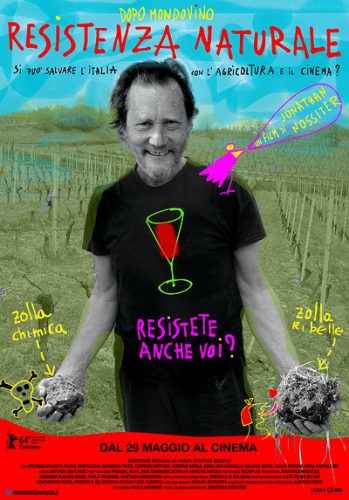

Natural Resistance, Jonathan Nossiter
From the director of MondoVino, which screened at FNC in 2004 exposing multinationals encroaching on the French wine industry, Jonathan Nossiter turns to the wine politics of Italy in Natural Resistance. These rebel winemakers are part of the Natural Wines movement, which forgo sulphites and pesticides, for even organic wines have some sulphites, albeit in smaller amounts. They refuse to bend to DOC appellation set in 1960s and this is why they are being stripped or voluntarily leaving the DOC appellation like the makers of a Colli Senesi Chianti wine for the first time in generations, always made with Sangiovese grapes. One couple was refused the appellation because they did not want filter their Verdicchio, because in the summer of 2011, the 42°C sun burnt the grapes, thus, creating the rich yellow colour and not the “straw colour” DOC dictates. The vintners from Siena in Tuscany, Piacenza in Emilia, Novi Ligure, Piemonte and Ancona le Marche discuss their difficulties they face as small producers. Even the multinational corporations are trying to land on the biodynamic, sulphite-free wine bandwagon squeezing small companies, while not respecting the terroir, planting grapes not indigenous to the territory and creating conventional taste from the same grapes all over Italy. The DOC functions differently from France’s AOC which focuses on territory, vins du pays. When the DOC was envisioned, the onus was on quality rather than geography. But the DOCG ( a guaranteed DOC) or IGT (typical geographically protected) created for geography, do not mean anything either as one winemaker found out in Norcia, in Umbria, famed for its salumi and pork by-products. The lone pork farmer, the locals call a fool, since his pork can’t get an IGTP because the pigs’ legs aren’t big enough while the transformation industries all get their pork from industrial pig farms from the north in Modena and nearby Parma gets pigs from elsewhere in Europe or China.
The female winemaker from the Emilia region, whose father was an environmentalist physicist on the forefront of the referendum which banned Nuclear power in the 1970s, says it is their ultimate goal to respect the environment, the grape and the customer as an ethical principal. That a good wine can be bought for 2 euros while with some DOC wines, the packaging is worth more than the bottled wine. The most adamant winemaker from Novi Ligure, whose Gavi and Dolcetto get refused, tried to pass off his neighbour’s DOC-approved conventional Gavi wine to the DOC panel, which got rejected, to prove the lack of transparency and standards. He shows viewers the rich hummus from his land and compares it to the arid hummus of the pesticide-laden neighbour’s land. The E.U. decides on agricultural policies for every European nation every 10 years and notice, how it has a communal minister of agriculture but no minister of defence, he says. He is faced with 150,000 euro worth of fines when his annual productivity is 500,000 euros.
The film detours to the Cineteca di Bologna’s director who explains why only in Italy, the masses refer to films as “old films” whereas no one would label art or literature old. The clips from films such as Chaplin’s boot soup sequence in The Gold Rush, scissors from M for Murder to Il Marchese del Grillo Don Bastiano’s monologue explain the conformity of taste, or tastelessness. Their inclusion meant to be didactic in cutting up talking head parts is jarring, especially the Rome Open City Pina yelling after Francesco and Mussolini’s speech on race in Trieste. While the scene of the Chinese opiate den in the silent film Broken China, a policeman jumps out of the window after consuming the substance and footage of a caged donkey next to caged tropical or polar animals , animals not indigenous to Italy, particularly fits. The onus of the film is cultural preservation like what Cineteca di Bologna does by restoring films, essentially preserving Italy’s cultural patrimony and industries. This includes Italy’s diminished farming population, now at 3% when it used to be 90%, and 6% a decade ago, shall be reduced to 2% like in America because corporations control agriculture. Historical Mario Soldati footage of illiterate farmers in both the North and South of Italy, sold the idea people when there will be no more illiteracy, people will be happier. Pasolini footage showed the traditional sexual mores of the farmers in the sixties.
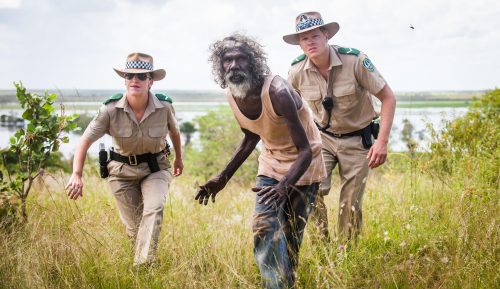

O Velho do Restelo (The Old Man of Belem) , Portugal 2014. Manoel de Oliveira.
O Velho do Restelo is a 19-minute film of epic proportions. Don Quixote (a creature of Cervantes’ imagination), Luis Vaz de Camoes (author of the Lusiads), Teixeira de Pascoaes (part of the 20th Century Portuguese literary renaissance) and Camilo Castelo Branco (a prolific 19th Century Portuguese writer) sit on a 21st-century bench for a chat about life. And they reminisce. What a delight for Lusophones who eavesdrop on their conversation!
***
Review by Maya Khankhoje
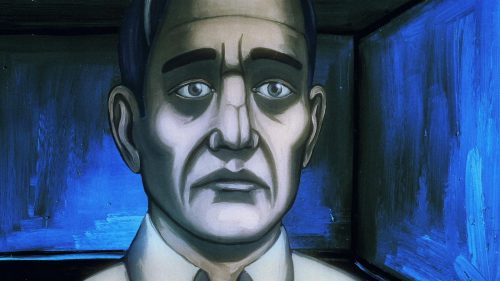
Une Chambre Bleue, France, Poland, 2014. Tomasz Siwinsky.
A man had a car accident and is in a coma. He sees flashes of his life through a window in a room from which he cannot escape. The room changes in appearance, so do the images that are visible on the other side. In the span of 14 minutes we see incredible images which become credible to those of us who have dreamt the impossible.
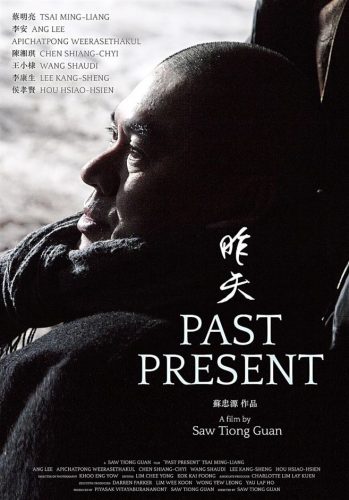
Past Present. Tiong Guan Saw. Malasia 2013.
I walked into the screening of Past Present by default. I had meant to go to another screening but a traffic jam forced me to step off the bus near the closest venue of the festival. For this, I am thankful.
Past Present is an exploration of Director Tsai Ming-Liang’s journey as a director and a filmgoer. He grew up in Kuching, Malaysia and moved to Taiwan in the 1970’s. In this film he revisited the old cinemas he used to frequent with his grandparents where his sensitivity for films was shaped. This documentary includes interviews with some of his colleagues ranging from Ang Lee to Apichatpong Weerasethakul, a glimpse of Ming-Liang’s childhood photographs and direct interviews with the director himself. The result is highly gratifying. From his monologues addressing the camera, shots of buildings from his past and excerpts from his films, the viewer learns that Ming-Liang does not need novelty or extensive travel or forays into experimentation to create meaningful works of art. It is all there in his life’s experience, in his inner sanctum. A man who can see beauty in decrepit buildings or old chairs is a true artist.
Do watch this film if you are a film buff or even if you just like art. You will be enriched by the experience.
***
Review by Maya Khankhoje
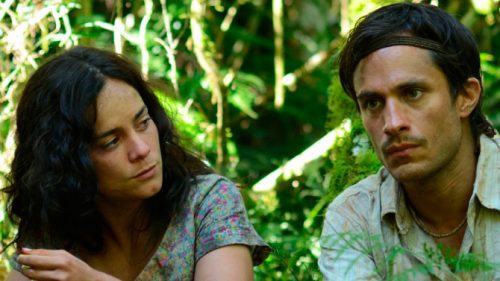
El Ardor, 2014. 43rd Festival du Nouveau Cinema, Montreal.
El Ardor is an Argentinean, Mexican, Brazilian and French co-production starring Gael Garcia Bernal from Mexico and Alice Braga, from Brazil.
Kai, a mysterious lithe man with light-coloured feline eyes witnesses a brutal attack in the jungle against two men and a woman. The older man is forced to sign away the ownership of his tobacco farm and is then killed in front of Vania, his daughter. The other man is also shot and the woman kidnapped.
Kai follows the perpetrators and eventually saves the woman from their clutches taking her back to where she belongs and then disappearing into the jungle again.
The viewer is not told the location of the plot although it is obvious that it could be anywhere in the South American jungles. The credits at the end of the movie reveal that it was filmed in Misiones, an area near Brazil, Paraguay and Argentina. But the exact location of the film doesn’t matter. What matters is that the story describes illegal land grabs in Latin America in general, except that in El Ardor the human predators are brought to justice by a lone man who can take on the powers and appearance of the jaguar whose job it is to maintain ecological balance in the jungle. The message is clear: indigenous populations shall prevail in the long run.
The film contains some misplaced nods to High Noon and other Westerns, it plods when not engaged in extreme violence and is sometimes claustrophobic but it is certainly worth watching. The acting of Bernal and Braga is as natural as the jungle in which it takes place and the superb cinematography more than does justice to the film’s title.
***


